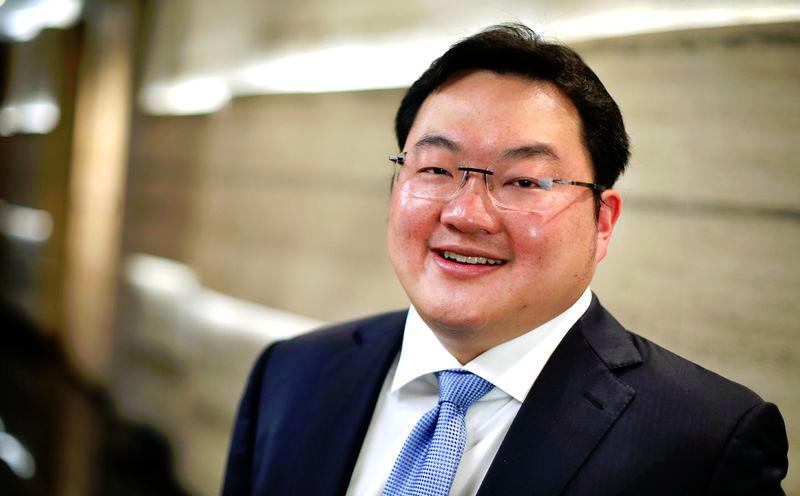PETALING JAYA: The United States Department of Justice (DoJ) and fugitive financier Low Taek Jho has reached a confidential agreement aiming for a global settlement to conclude the extensive asset forfeiture campaign linked to the 1Malaysia Development Bhd (1MDB) corruption scandal.
According to Channel News Asia, citing the documents it reviewed, this global settlement agreement is intended to “forever (resolve) United States’ civil, criminal and administrative asset forfeiture actions or proceeding relating to the disposition” of assets tied to 1MDB.
The DoJ signed a confidential agreement with Low’s family lawyers and financial trustees in early June, according to sources close to the matter.
It would include surrendering assets identified by authorities before, as well as those not yet claimed or seized by prosecuting agencies worldwide, under a new settlement plan.
ALSO READ: DOJ recovers US$100 million civil forfeiture in 1MDB scheme
Former US Attorney-General Jeff Sessions once described the 1MDB scandal as “kleptocracy at its worst.”
This deal could potentially bring closure to one of Washington’s longest-running asset forfeiture cases.
Acting Chief Margaret A. Moeser of the Money Laundering and Asset Recovery section in the DoJ’s Criminal Division signed the agreement, along with Robin Rathmell, representing Low’s financial trustee from the law firm Kasowitz Benson Torres, and Low’s family lawyer.
While the details of the confidential agreement remain undisclosed, it is linked to the DoJ’s announcement on Wednesday (June 26) of recovering an additional US$100 million (RM471.73 million) from resolving two civil forfeiture cases.
The recovered assets include artworks by Andy Warhol and Claude Monet, financial deposits, and properties in Singapore and other countries.
According to the report, lawyers stated that the agreement, signed by the parties on June 3 and 4, includes additional confidential commitments to the US government.
The US will lead negotiations with other countries, aiming for a global resolution to the scandal that resulted in the imprisonment of former Prime Minister Datuk Seri Najib Razak.
ALSO READ: Jho Low orchestrated 1MDB operation - Witness
Najib and Low were behind the scandal-ridden state-owned sovereign fund 1MDB.
“As we have discussed, this Settlement Letter Agreement takes into account your preference for the United States to handle negotiations with Malaysia, Singapore, Switzerland, France and other foreign countries which have restraining orders in place as to most of the assets described below and in the Actions, and sets forth the procedure for the liquidation and transfer of net liquidated proceeds to Malaysia, as well as our mutual interest in resolving any potential litigation over the assets referenced below in Table 1,” the document states.
The list of assets was not disclosed in the document reviewed by CNA.
However, the Settlement Agreement Letter contradicts DoJ’s statement
This latest settlement agreement marks the second asset forfeiture deal between the DoJ and Low, following a separate US$700 million deal in October 2019.
The aftermath of the 1MDB scandal continues to reverberate in Malaysia, with Low still sought as one of the country’s most wanted criminal suspects.
ALSO READ: 1MDB, bank officials did not conspire to defraud Najib - High Court told
The detailed provisions in the Settlement Agreement Letter differ significantly from the DoJ’s public statement on Wednesday, which mentioned resolving two civil forfeiture cases involving assets allegedly purchased with misappropriated 1MDB funds.
US prosecutors have asserted that over US$4.5 billion was misappropriated from 1MDB between 2009 and 2015 as part of a complex conspiracy.
The DoJ stated that Low acquired artworks by Warhol and Monet for approximately US$35 million and valued surrendered financial deposits and real estate properties at about US$67 million.
Low faces charges in the Eastern District of New York for conspiring to launder billions from 1MDB and violating the Foreign Corrupt Practices Act by allegedly paying bribes to Malaysian and Emirati officials.
He also faces charges in the District of Columbia for conspiring to make and conceal foreign and conduit campaign contributions during the 2012 US presidential election.
The DoJ emphasised that the recent settlement “does not release any entity or individual from filed or potential criminal charges.”
Low, who is widely believed to be in China and remains elusive, could not be reached for comment.
ALSO READ: Najib attempts to stop probe against 1MDB - Investigating Officer
His lawyer, Rathmell, did not respond to email queries.
Lawyers following the 1MDB case observed that Low’s legal issues with the DoJ represent the final phase of the DoJ’s efforts to combat extensive misappropriation, money laundering, and corruption.
It started in 2015, centering on the US$6 billion in 1MDB bonds issued in three tranches, coordinated by Goldman Sachs.
The investment bank, Goldman Sachs, which made nearly $600 million in fees from two bond issues in 2012 and 2013, paid $2.9 billion in penalties and fees to the DoJ to settle its involvement in the 1MDB bribery scheme.
Tim Leissner, former Southeast Asia head at Goldman Sachs, pleaded guilty to money laundering and foreign bribery conspiracy charges in 2018. He received a lifetime ban from the Monetary Authority of Singapore, barring him from operating in the country’s financial sector.
ALSO READ: US govt to continue looking for 1MDB stolen assets, funds - Ambassador
His colleague Roger Ng received a 10-year prison sentence for money laundering charges in March 2023 and was extradited to Malaysia last October to assist ongoing investigations into the 1MDB scandal.
Legal and financial sources close to the situation indicated that Low’s lawyers initiated negotiations for a “one-time settlement” in February this year.
“The plan was to acknowledge assets that the US knew about, bring to the surface assets that were previously not captured under a fresh deal,” noted one senior Hong Kong-based financial executive familiar with the negotiation and close to the Low family.
The DoJ became receptive to the proposal in early May this year, a source said.









